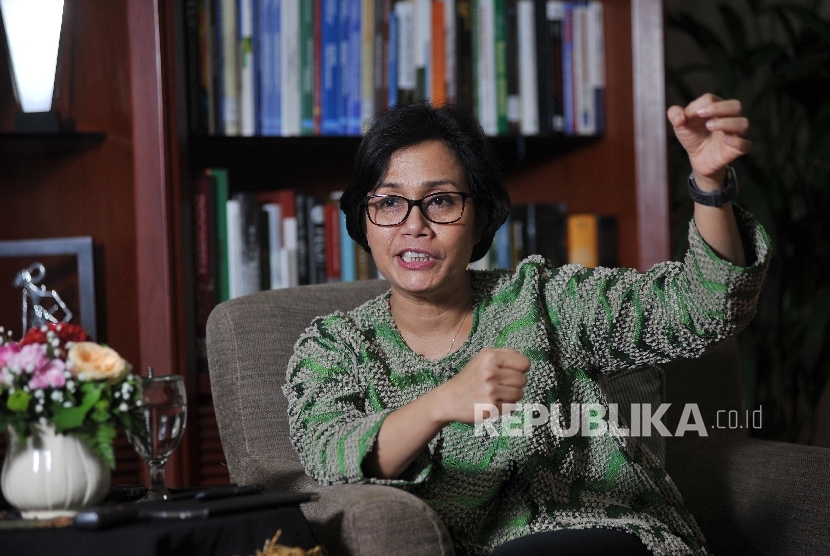REPUBLIKA.CO.ID, JAKARTA -- Indonesia's Finance Minister Sri Mulyani said that the country's economic growth assumption in 2018, at 5.4 percent to 6.1 percent, has reflected the government's optimism and prudence at the same time.
Sri Mulyani made her statement here on Tuesday before the parliament's plenary session regarding the macro-economic framework and fiscal policies in the 2018 state budget.
"Economic growth in 2018 is projected at 5.4 to 6.1 percent. It reflects a combination of optimism for its potential as well as prudence for global uncertainty," the minister stated.
The government has agreed on the factions' opinion that the country's economic growth should be enhanced further to move the real sectors, absorb more work forces, and improve people's welfare. Thus, it could accelerate its program to alleviate poverty and reduce inequality.
Therefore, the government has strengthened all sources for economic growth, including household consumption, investment, export, and government expenditure, which is more productive and efficient.
"We would maintain household consumption at 5.4 percent, through the increase of job opportunity, to keep inflation low with the support of social expenditure," she added.
Investment is projected to grow by 8 percent with simultaneous government expenditure for infrastructure and the increased participation of state-run as well as private firms in infrastructure development.
The government would continue to optimize investment funding sources apart from the state budget and improve investment climate by simplifying procedures.
The increased rate to 'investment grade' by Standard & Poor's (S&P) is expected to improve private investors' trust and encourage capital flows to Indonesia, the minister revealed.
"An increase in investment would be followed by increased production capacity, which furthermore would create more jobs," Sri Mulyani remarked.
Meanwhile, with the recovery of global economic growth, the government would encourage competitiveness of exported manufacture products, value-added commodities, and market expansion.
Therefore, the government would focus on the improvement in productivity in its logistic system, infrastructure, simple regulation, and human resources quality, she explained.
Sri Mulyani disclosed that industrialization process, which resulted in high value-added products, should be encouraged, with advanced technology and efficiency based on agriculture sector, including upstream industry development.
"Thus, the connections between upstream and downstream industry would improve to secure domestic supply chain and increase the added values and opportunities to export new products," she stressed.


